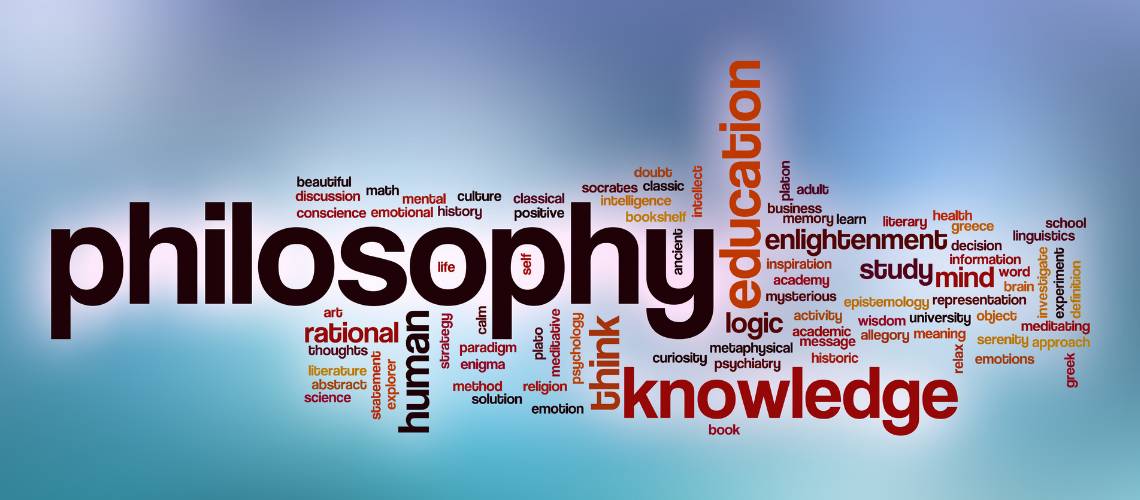Title: Philosophy's Essence: The Pursuit of Truth and Wisdom
Introduction
Philosophy, originating from the Greek words "philos" (love) and "sophia" (wisdom), represents a timeless journey towards knowledge, truth, and wisdom. This field of study has captivated human minds for centuries, delving into profound inquiries concerning existence, morality, reality, and the very essence of knowledge. In this essay, we will delve into the core of philosophy, its historical origins, and its enduring significance in today's world.
The Historical Foundations of Philosophy
The origins of philosophy can be traced back to ancient civilizations where thinkers like Confucius in China, Laozi in ancient China, and early Indian philosophers explored fundamental principles governing life and the universe. Nevertheless, it was in ancient Greece that philosophy, as we comprehend it today, truly flourished. Key figures like Socrates, Plato, and Aristotle laid the groundwork for Western philosophy.
Socrates, often hailed as the progenitor of Western philosophy, utilized the Socratic method—a technique involving probing questions—to stimulate critical thinking and self-examination. His unwavering pursuit of truth and wisdom, vividly documented in Plato's dialogues, epitomizes the essential spirit of philosophy.
Plato, a disciple of Socrates, delved into metaphysical inquiries, exploring the essence of reality, the existence of an eternal realm of Forms, and an ideal society governed by philosopher-kings. His literary works, such as "The Republic" and "The Symposium," continue to exert influence on philosophical discourse.
Aristotle, another student of Plato, made substantial contributions to ethics, politics, and the sciences. His methodical approach to knowledge and emphasis on empirical observation laid the groundwork for the scientific method and critical thinking.
The Pursuit of Truth and Wisdom
At its core, philosophy embodies the pursuit of truth and wisdom. Philosophers grapple with fundamental questions such as: What constitutes the nature of reality? What is the purpose of human existence? How should one lead a virtuous life? These inquiries drive philosophers to explore, analyze, and seek answers through rational inquiry and introspection.
Metaphysics, one of the fundamental branches of philosophy, scrutinizes the nature of reality, delving into questions about the existence of the soul, the characteristics of time and space, and the ultimate reality beyond appearances. This field of philosophy delves into the very essence of existence itself.
Ethics, another crucial branch, addresses questions of morality and the guidelines for virtuous living. Philosophers like Immanuel Kant and John Stuart Mill have proposed contrasting ethical theories, such as deontology and utilitarianism, which offer guidance in ethical decision-making.
Epistemology, the study of knowledge, explores how knowledge is acquired, its constraints, and its reliability. René Descartes, a prominent philosopher, famously challenged the certainty of knowledge and sought to establish a foundation for unequivocal knowledge through methods of skepticism and reason.
The Contemporary Relevance of Philosophy
In the modern era, philosophy remains as pertinent as ever. It plays a pivotal role in fostering critical thinking, resolving complex issues, and guiding ethical decision-making. In an age where information blurs the lines between fact and opinion, philosophical reasoning assists individuals in discerning truth from falsehood and making informed choices.
Ethics in philosophy continues to inform discussions on contemporary issues like environmental conservation, bioethics, and social justice. Ethical frameworks formulated by philosophers shape responses to intricate dilemmas, influencing public policies and personal conduct.
Moreover, philosophy intersects with various fields, including artificial intelligence ethics, where concerns regarding the moral responsibility of AI systems and their societal impact are addressed. This interdisciplinary approach underscores the enduring pertinence of philosophy in our rapidly evolving world.
Conclusion
In conclusion, philosophy represents an ageless and indispensable pursuit that encompasses an unyielding quest for truth and wisdom. Its historical roots in ancient civilizations and its evolution in ancient Greece have left an indelible imprint on human thought. Philosophy's enduring significance is evident in its contribution to critical thinking, ethical deliberations, and its involvement in contemporary matters.
As we continue to grapple with profound questions pertaining to existence, morality, and knowledge, philosophy remains a guiding beacon, urging us to question, explore, and seek the profound truths that define our existence and mold our destiny. In the words of Socrates, "An unexamined life is not worth living." Philosophy invites us to embrace a life of examination, inquiry, and intellectual growth, as we embark on the timeless quest for truth and wisdom.


























Total Comments: 0